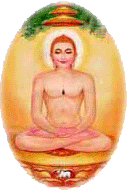Tassa Michchhami Dukkadam
 |
By Mr. Sudhir M. Shah
At the end of Paryushan, we ask each other for forgiveness for all the offenses committed during the last year. Even during Pratikraman we say’ Tassa Michchhami Dukkadam’ at the end of many sutras, meaning, if I have committed any violations of transgressions related to minor vows, may I be forgiven for those violations. It is also believed that Pratikraman or saying ‘Michchhami Dukkadam’ would help us get rid of many of our karmas!
This entire festival revolves around asking for forgiveness. It has almost become a mechanical process. And yet, the first line in our Kshamapna Sutra: ‘Khamemi Savva Jiva’ states _ I grant forgiveness to all living beings, This powerful philosophy, somehow, got diluted in our practice. In my opinion, it is more important to forgive that to ask for forgiveness. We need to forgive others, not because they need our forgiveness. It is because we need to release ourselves from the rage, hostility and resentment we carry within us when we don’t forgive. I have often heard people say, “I have no problem forgiving. If he/she asks, I will forgive him/her.” This is not true forgiveness. It just feeds our own ego and does more harm than good. Forgiveness is not a sense of false humility that makes us better that somebody else. It is an attitude that sets us free, so that we are not continually re-victimized by our wounds. The other excuse people use for not willing to forgive someone is “If I forgive so easily, he/she will continue doing the same thing and will never learn a lesson”. Well, there is a penalty for not granting forgiveness. The penalty we experience is the hurt that remains trapped within us, which rots a portion of our body, mind and soul daily. In order to heal ourselves of the wounds inflicted upon us we must be willing to forgive those who hurt us, totally and unconditionally. It does not mean that we must go and tell them that they are forgiven. It doesn’t mean, if we are the offending party, we must go to the other and beg for their forgiveness. Realization of our mistake and true repentance (Prayaschitta) can in itself set new direction for our life. Forgiveness not only makes us whole once again, it energizes us and makes our world more beautiful that ever. In my case, I have always been hurt a lot easier than I used to admit to, and in the past, instead of healing my hurt I would deny it. I believed I should not be hurt so easily. The problem with this denial is that it created secret resentments and I experienced depression so deep within me that it almost incapacitated me. Learning to forgive has made all the difference. As someone once said, “Forgiveness isn’t about letting him or her off the book… it’s about taking the knife out of your soul”. When it comes to forgiveness, it is far better to have a small amount of the real thing than massive quantities of the fake stuff. So let us revive the tradition of forgiveness in a "true" sense. Let me end here with a poem by Tagore :
Go not to the temple to put flowers upon the feet of God,
First fill your own house with the fragrance of Love.
Go not to the temple to light candles before the altar of God,
First remove the darkness of sin from your heart.
Go not to the temple to bow down your head in prayer,
First learn to bow in humility before your fellowmen.
Go not to the temple to pray on bended knees,
First bend down to lift someone who is down trodden.
Go not to the temple to ask for forgiveness for your sins,
First forgive from your heart those who have sinned against you.
-----------------------------------------------------
Author : Mr. Sudhir M. Shah
Article Received From Yahoo Mail : Mr. Manish Modi, E-Mail : manish.modi@bol.net.in
-----------------------------------------------------
Mail to : Ahimsa Foundation
www.jainsamaj.org
R17102